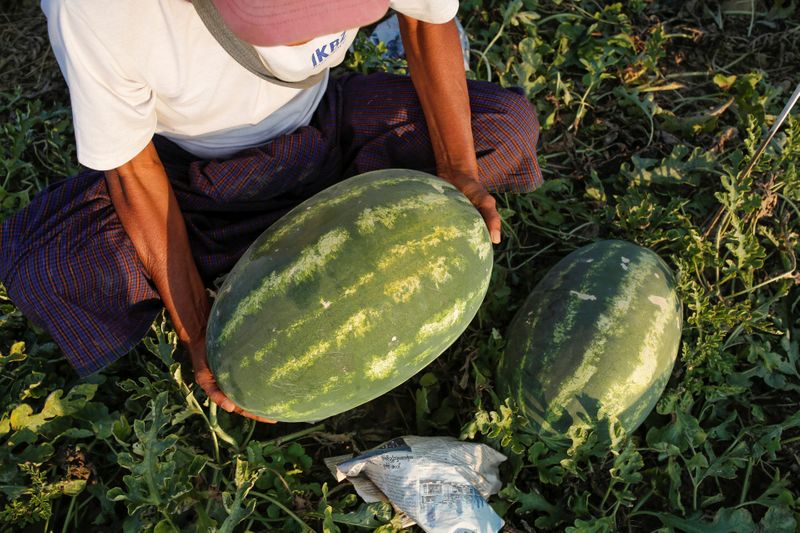By Thu Thu Aung and Ann Wang
BAGO, Myanmar (Reuters) - In a field in southern Myanmar, Naing Lin Htet stands among hundreds of overripe watermelons he intended to export to neighbouring China but will instead leave to rot because of the fast-spreading coronavirus that has hammered sales.
"The traders told us not to bring the produce to the border as there are no buyers there," the 43-year-old farmer said. "So we don't dare to bring our fruit."
Almost all of his harvest would have been bound for China, he said, but he has chosen not to waste money on transport and has slashed his 300-strong workforce to just 40 labourers.
China, the world's most populous nation, usually has a voracious appetite for everything from raw materials and fuels to food.
But the combination of an extended Lunar New Year holiday and the rapid spread of the coronavirus, which has killed more than 600 people and restricted the movement of millions more, has jammed logistics channels into and across China.
China is Myanmar’s biggest trading partner and trade at a single border gate, the northern town of Muse, is worth about $1 billion (£773.46 million) per year, government statistics show, with Myanmar exporting rice, pulses, dried tea, fruit and animal products.
Normally, hundreds of trucks loaded with watermelons pass into China every day, Sai Khin Maung, the owner of a fruit warehouse in Muse, told Reuters by phone.
Although the border remains open, just 20 or 25 trucks carrying the fruit have been passing the gate in recent days because there are so few buyers, and the goods are selling for a third of their usual value, he said.
"The situation makes me a bit worried," said U Shwin, another farmer, who is hoping to sell about $34,000 (£26,297.47) worth of fruit already at the border before it goes bad.
Several farmers said they planned to divert trucks to cities across Myanmar, but domestic appetite is low and with another harvest expected in coming weeks they are worried about further losses.
"If the virus lasts until March, all of us could make a loss," said Win Kyaw Khaing, a senior member of Myanmar’s Watermelon and Muskmelon Exporters and Producers Association.

"(But) we have faith in rich, giant China. I believe they can handle the virus outbreak," he added.